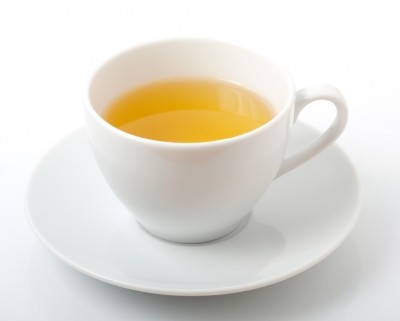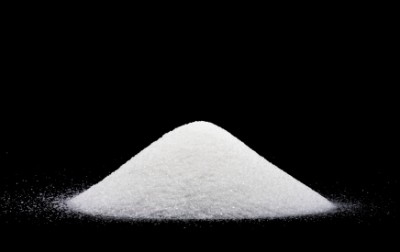Study supports diet soda’s potential for weight management
!['These results strongly suggest that [non-nutritive sweetened] beverages can be part of an effective weight loss strategy and individuals who desire to consume them should not be discouraged from doing so' - Peters et al.](/var/wrbm_gb_food_pharma/storage/images/_aliases/wrbm_large/9/7/6/4/344679-1-eng-GB/Study-supports-diet-soda-s-potential-for-weight-management.jpg)
According to findings published in Obesity, the clinical study involving 303 participants found that the diet beverage group lost an average of 13 pounds over the 12 weeks of study, compared with an average loss of 9 pounds in the water group.
“This study clearly demonstrates that diet beverages can in fact help people lose weight, directly countering myths in recent years that suggest the opposite effect – weight gain,” said James Hill, PhD, executive director of the University of Colorado Anschutz Health and Wellness Center and a co-author of the study.
“In fact, those who drank diet beverages lost more weight and reported feeling significantly less hungry than those who drank water alone. This reinforces that if you’re trying to shed pounds, you can enjoy diet beverages.”
Controversy
The topic of diet beverages and weight loss is somewhat controversial, with some commentators arguing that regular consumption of diet sodas can induce ‘metabolic derangements’, which may increase a consumer’s risk of excessive weight gain, metabolic syndrome, type-2 diabetes, and cardiovascular disease.
Indeed, results of a large US-based study involving more than 23,000 adults has suggested that people who are overweight or obese drink more sugar-free beverages than people of a healthy weight, and that these overweight and obese diet beverages consumers consume more calories from food than obese or overweight adults who drink 'regular soda' or other sugar sweetened beverages (SSBs) - thus counterbalancing any reduction in calorie intake from drinking the sugar-free beverage (American Journal of Public Health, Vol. 104, pp. e72-e78).
However, a 2010 review in the British Journal of Nutrition found that “there is no consistent evidence that low-energy sweeteners increase appetite or subsequent food intake, cause insulin release or affect blood pressure in normal subjects”. A more recent study - click here - published in the American Journal of Clinical Nutrition in Feb 2013 came to the same conclusion.
In addition, a 2012 study also published in the American Journal of Clinical Nutrition (click here) showed that replacing caloric beverages with non-caloric beverages was an effective weight-loss strategy, while a 2009 published in the International Journal of Obesity (click here) showed that those who have lost weight and successfully kept it off adopt a number of strategies, including drinking more artificially sweetened beverages.
“There’s so much misinformation about diet beverages that isn’t based on studies designed to test cause and effect, especially on the Internet,” said John Peters, co-author of the new study. “This research allows dieters to feel confident that low- and no-calorie sweetened beverages can play an important and helpful role as part of an effective and comprehensive weight loss strategy.”
‘Unconvinced’
However, Professor Marion Nestle from the Department of Nutrition, Food Studies, and Public Health at New York University, had a different perspective, and told FoodNavigator-USA: “I'm not aware of convincing evidence that diet sodas promote weight loss and this study does not change that view.
"This is a very short-term study. If this study had been independently funded, the investigators might have waited to publish the 12-week run in phase until they had data for the following 9 months."
Commenting on the source of funding for the study, she added: “It's not that sponsorship buys favorable results; it's that sponsored investigators do not recognize how sponsorship influences their thinking.”
Study details
Peters and his co-workers recruited 303 people with an average age of 47.8 and an average BMI of 33.6 kg.m2 to participate in their prospective, randomized clinical trial. Participants were assigned to a behavioral weight loss program with either diet beverages (diet sodas, teas and flavored waters) or water only for 12 weeks.
Results showed that, in addition to the diet group losing an average of 44% more weight than the water group, the diet beverage group reported feeling significantly less hungry, and showed significantly greater improvements in serum levels of total cholesterol and low-density lipoprotein (LDL). Both groups saw reductions in waist circumference, and blood pressure, added the researchers.
“These results strongly suggest that [non-nutritive sweetened] beverages can be part of an effective weight loss strategy and individuals who desire to consume them should not be discouraged from doing so because of concerns that they will undermine short-term weight loss efforts,” they concluded.
Source: Obesity
June 2014, Volume 22, Issue 6, pages 1415–1421, doi:
“The effects of water and non-nutritive sweetened beverages on weight loss during a 12-week weight loss treatment program”
Authors: J.C. Peters, H.R. Wyatt, G.D. Foster, Z. Pan, A.C. Wojtanowski, S.S. Vander Veur, S.J. Herring, C. Brill, J.O. Hill










